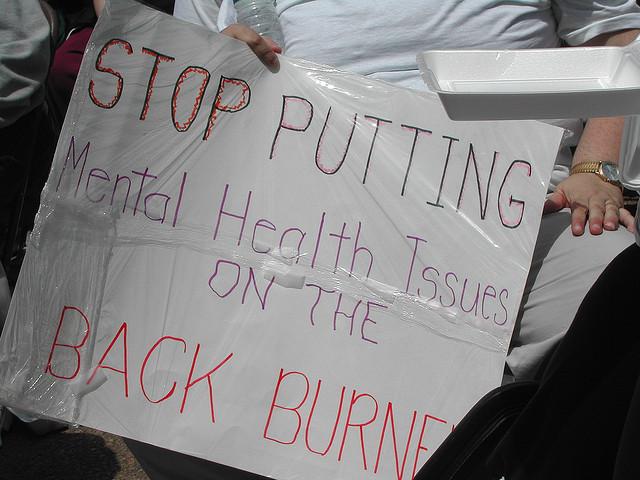Mental health has always been an issue, and it has always been hard to talk about. But it would seem, in recent years, people have begun to recognize the importance behind addressing its implications. On social media, people are open about their mental struggles, movies and TV shows are less afraid to depict the nature of mental health in a more realistic, honest manner. We’ve come a long way in terms of recognition and response to mental health.
But sometimes societal changes aren’t enough without support from politicians. Fortunately, in Wisconsin, we are starting to see changes on the political level, too.
In early October, Madison Mayor Paul Soglin presented his 2019 operating budget. The proposed budget, which is $332 million in total, includes significant increases in funding for public mental health services, such as a crisis counselor for peer support teams in the Fire and Police Departments. The plan also features a 75 percent increase in funding for a peer support program which aims to curb cycles of violence and other commitments to mental health support.
In late September, Dane County Executive Joe Parisi announced that Dane County will be increasing funding for the county’s emergency mobile mental crisis program by $320,000, resulting in a total budget of $425,000 annually for the program.
On Sept. 17, Tony Evers released his Department of Public Instruction 2019-2021 biennial budget request. The budget, which would require at 10 percent increase in funding for public schools, features a $58 million increase in funding for mental health services, such as employment of more counselors and social workers, and implementation of school climate and safety trainings.
Last year, Gov. Scott Walker announced a plan, which is set to begin this fall, to pay mental health professionals to work with low-income Wisconsinites, an expansion which cost about $17 million.
Wisconsin politicians are making one thing clear: investing in citizen’s public health should — and will — be a priority.
Now, it’s up to us, as citizens.
Even though we’ve come a long way in terms of destigmatizing mental health and seeking treatment for mental illness, there is still a long way to go. According to Psychology Today, not addressing the internal stigma we all hold about mental health is actually making our mental health worse.
But that can change. Support people who struggle with mental health issues. Start seeing a therapist regularly, even if you don’t think it’s necessary. Talk with your friends about your mental health, and open your ears when they are ready to talk about theirs. Don’t be afraid or embarrassed to show your emotions and don’t create environments in which others are afraid or embarrassed to show theirs.
What we’ve created here is a positive feedback loop. Our politicians have started caring more about mental health issues because we said they matter. Now that politicians have invested in these issues, it’s up to us to use these resources and respond with feedback. What else do we need? What programs aren’t working, and which ones are?
We’re seeing this influence on an intermediate level too — last year, University Health Services made massive strides with the expansion of mental health programming, hiring new staff and development of more support for students.
If we continue to publicize how much mental health matters, support for mental health care will continue to grow. But this only happens when we put pressure on our administrations, whether academic, political or otherwise, to give us what we need.
Cait Gibbons (cgibbons@badgerherald.com) is a junior studying math and Chinese.














